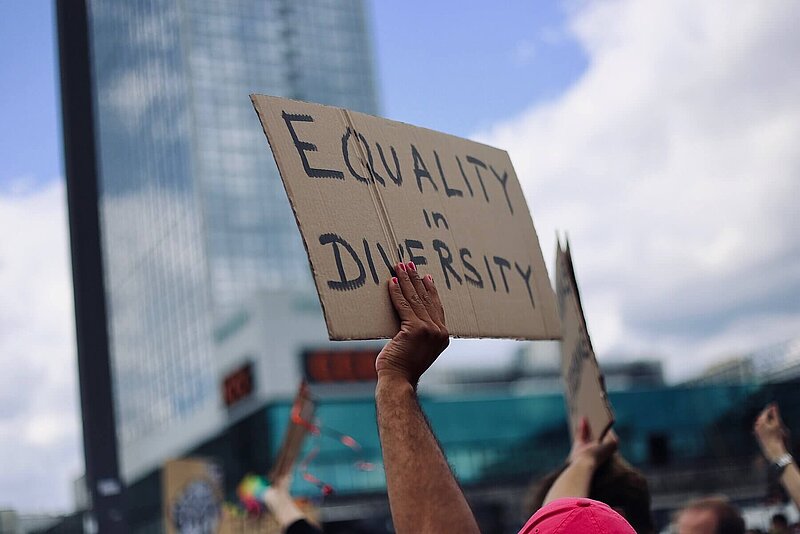
Professor of Organisation, Strategy and Leadership Johanna Mair co-authors study on diversity initiatives in Israel.
Despite increased investments in diversity, inequalities in our societies only seem to be worsening. A paradox? A study by Hertie School Professor of Organisation, Strategy and Leadership Johanna Mair and Dr Linda Jakob Sadeh of the Ruppin Academic Center shows that diversity initiatives in Israel are successfully reducing economic inequality, but they are at the same time reinforcing political inequality. The article, titled “Reinforcing political inequality through diversity initiatives: A field-level perspective”, appeared in April in the Journal of Management.
The study is based on a 19-month field-level ethnography in Israel that examines efforts to integrate Palestinian citizens into the country’s largely Jewish workforce. In their research, Jakob Sadeh and Mair conducted observations in cross-organisational meetings and interviews with key actors from the field. They also analysed research reports and training and website materials of various actors, as well as media coverage of diversity efforts and social media interactions.
Best practices in diversity work lead to mixed results
The results of Jakob Sadeh and Mair ’s research show that diversity initiatives engaging in best practices, for example establishing mentoring programmes and diversity task forces and appointing diversity officers, are successfully tackling the economic inequality faced by Palestinian citizens of Israel. Yet the researchers also found that these efforts are complicit with and reinforce political inequality in the field and its related organisations.
“Our results show that the diversity field in Israel is built on the distinction between the economic and political spheres,” Mair explains. “We found that when central actors solely focus on economic issues, and conversations remain among them or in the pages of economic magazines and sections, an unspoken, taken-for-granted understanding of diversity as an economic endeavour emerges and is maintained.” In the authors’ view, this disconnect between the political and economic spheres allows these actors to celebrate the mitigation of inequality while at the same time perpetuating fundamental political aspects of it.
Implications for diversity initiatives
The fact that well-intended diversity initiatives unwittingly entrench political inequality has important theoretical and practical implications, say the authors.
“Our study challenges the diversity literature’s focus on systemic best practices that treat organisations as systems but do not relate to organisations and fields as part of political systems,” Mair says. “By universally applying best practices, diversity efforts confine themselves to ‘comfortable’ social categories and group narratives while ignoring more socially challenging identity categories.”
Jakob Sadeh and Mair argue that to bring about more fundamental societal change, diversity initiatives need to target political inequality. They should do this by going beyond group representation and wages to include aspects such as language, symbolic objects and recognition of political group identity in their work.
Read the full study in the Journal of Management.
More about our expert
-
Johanna Mair, Professor of Organization, Strategy and Leadership
